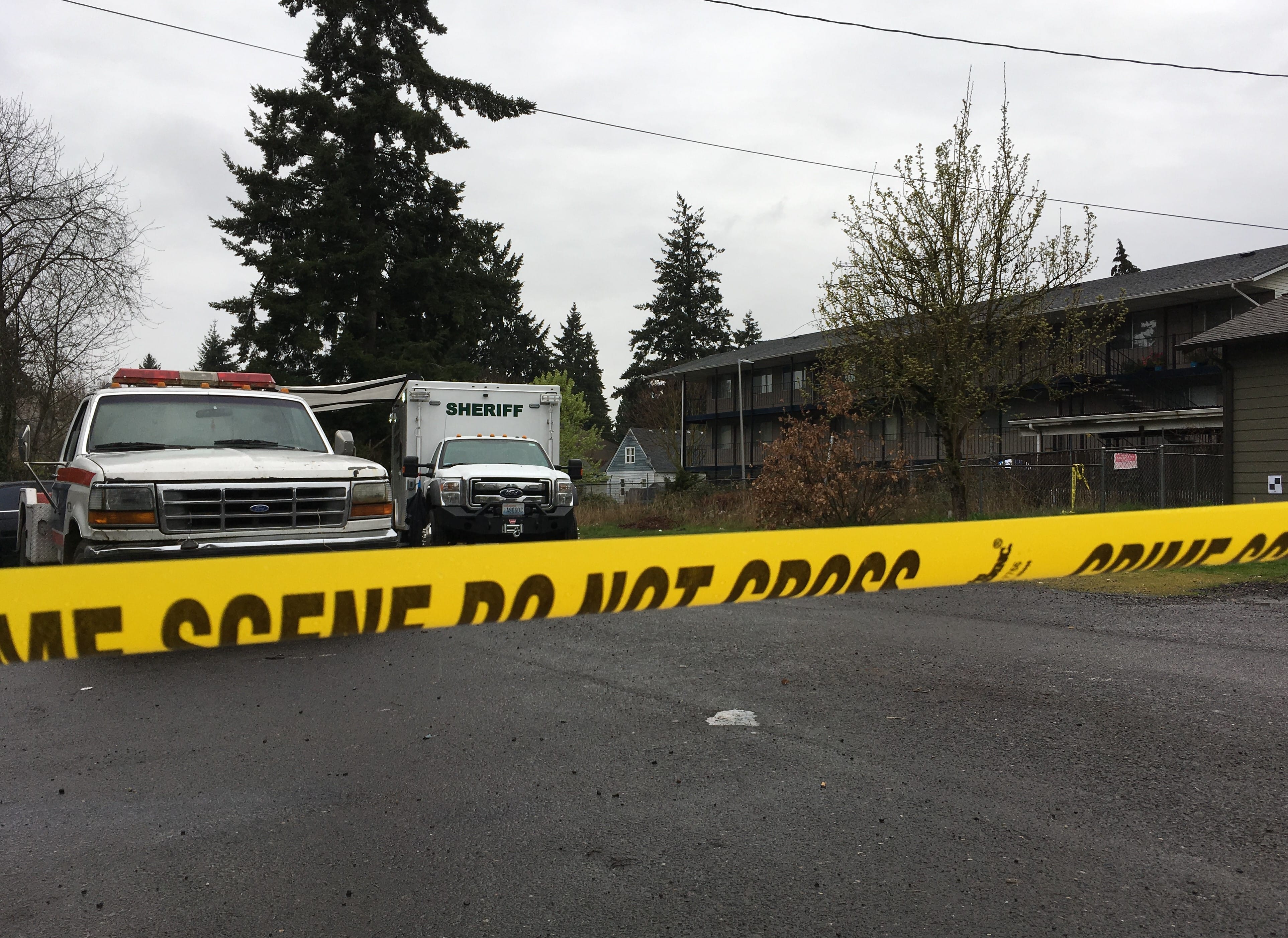While the rate of vehicle thefts in Vancouver rose, property and violent-crime rates generally dropped from 2016 to 2017 in Clark County, keeping with national trends, according to crime statistics released by the FBI Monday.
The FBI’s latest data, for 2017, shows the rate of reports of vehicle thefts per 100,000 people in Vancouver grew 4 percent from 2016 to 2017. That was after climbing 13 percent the year before, from 576 to 601 reports per 100,000 residents.
Ridgefield and Camas saw year-to-year increases in the rate of vehicle-theft reports.
Still, the 10-year trend for agencies across the county show declining or largely flat rates for vehicle thefts. The FBI’s annual data release, called the Crime in the United States report, always comes with a few big caveats, chief among them being that the data, the Uniform Crime Reporting Program, categorize crimes hierarchically, which can give the wrong impression for some numbers.
For instance, a carjacking would be tagged in the reporting methods as a robbery, not a vehicle theft. This sometimes leads to crimes being undercounted. The cataloged crimes are also only those that were reported to law enforcement.
Vancouver Police Department spokeswoman Kim Kapp said that while the raw number of reported car thefts in Vancouver has grown in the past few years, the department’s analysts, who have much more granular data than what’s released by the FBI, aren’t seeing a significant outlier.
“The numbers are pretty consistent with what would be considered normal deviations related to growth in population,” Kapp said.
Except in Camas, where the rate of reported property crimes grew 12 percent in 2017, county law enforcement agencies also saw declines in property crime rates in 2017.
Property crimes included in the FBI’s report consist of reports for larceny or theft, burglaries and vehicle thefts. While Camas saw a higher rate in 2017, it came at the end of a 10-year decline.
Even with a gradual decline, Vancouver’s property-crime rate, at 3,092 per 100,000 people, was higher in 2017 than the national rate of 2,362 per 100,000.
More than 7.7 million property crimes were reported in 2017, according to the FBI. Burglaries dropped 7.6 percent and larceny-thefts decreased 2.2 percent. Motor vehicle thefts increased nationally 0.8 percent from 2016 to 2017.
The rate of violent crime — categorized in the FBI’s reports as murders or non-negligent manslaughters, robberies, rapes or aggravated assaults — in Vancouver also declined in 2017, keeping with the 10-year trends.
The 10-year trends show declining crimes rates in the smaller cities, even if the rates for some showed significant increases or declines. However, the raw numbers are relatively small, which leads to what look like large percentage increases and makes trends hard to identify.
From 2007 to 2017, the raw number of reported violent crimes in Battle Ground, Camas, La Center, Ridgefield or Washougal averaged around 50 reports, with the number of reports from any agency exceeding 40 in a year just twice.
Nationally, violent crime decreased slightly, 0.2 percent, from 2016 to 2017. The FBI received reports for more than 1.2 million violent crimes nationwide in 2017, and changes in the raw numbers were fairly small: A 0.7 percent decrease in murders, and a 4 percent decrease in robberies, and a 1 percent increase in aggravated assaults.
Nationally, the violent rate crime decreased 3 percent, to 383 reports per 100,000 people. Vancouver’s rate was 368 per 100,000 in 2017.
Clayton Mosher, a professor in Washington State University Vancouver’s sociology department who focuses on criminology, said little of what the FBI reported regarding Clark County stood out.
“I really don’t see a heck of a lot going on,” he said. “It’s not a huge downward trend, but it is a downward trend.”




